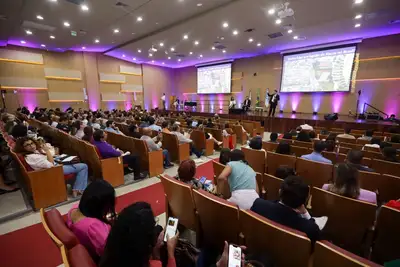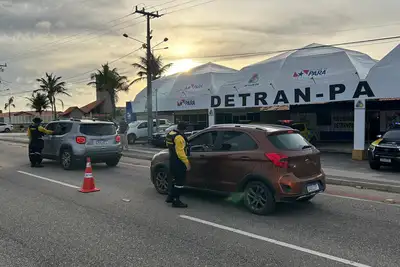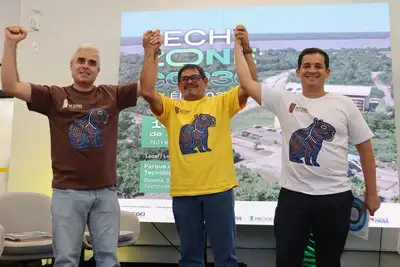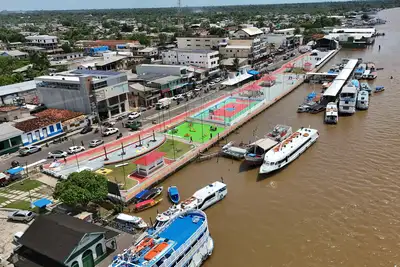Semas encourages the role of youth in the defense of zero deforestation at COP30
Young people, experts, government representatives, and partner institutions discussed paths for engagement and social participation in the climate agenda
The State Secretariat for Environment, Climate and Sustainability (Semas) participated, this Friday (14), in the panel "Zero Deforestation: The role of youth in promoting conservation and building public policies for REDD+", held at Freezone, in Belém. The meeting brought together young people, experts, government representatives, and partner institutions to discuss paths for engagement and social participation in the climate agenda.
Semas was represented by the Deputy Secretary for Water and Climate Management, Renata Nobre, who highlighted the importance of building structured public policies and strengthening territories to reduce deforestation and promote opportunities for youth.

The representative of the Secretariat reinforced the importance of understanding how environmental jurisdiction works in Brazil, emphasizing how the REDD+ Jurisdictional System of Pará (Reduction of Emissions from Deforestation and Forest Degradation) has been directing efforts to strengthen land use planning, environmental regulation, bioeconomy, and climate governance.
"The state policy on climate change, already in operation since 2020, seeks to primarily mitigate emissions from land use, as it is the main source of emissions in the State, integrating public policies and strengthening state and municipal capacities to face this challenge," explained Renata Nobre.
She also highlighted the policies that have already been implemented in the State, such as the integration of environmental regularization programs, technical assistance, bioeconomy, and governance improvements, which directly support the permanence of populations in their territories.
Renata Nobre also emphasized that keeping young people in traditional territories is essential to consolidate sustainability trajectories and avoid rural exodus.
"When we bring structure, quality of life, and socioeconomic options, we create conditions for young people to stay in their territories. This naturally contributes to forest conservation, reducing pressures and strengthening community dynamics," she informed.

Protagonism - The Deputy Secretary also emphasized the role of youth in the discussions at COP30, recognizing the protagonism of this generation in building solutions for mitigating the climate crisis. "This is a COP that will go down in history. The movement of youth, cities, and rural areas shows that we are facing a generation that will be a driver of change in the next 10 or 20 years. This transformation starts now," assured Renata Nobre.
The panel also featured the presence of Catharina Vale from the United Nations Convention to Combat Desertification and Mitigate the Effects of Drought (UNCCD); Poran Potiguara, representing The Nature Conservancy Brazil (TNC), and Ronaldo Amanayé, representing the Federation of Indigenous Peoples of the State of Pará (Fepipa).










